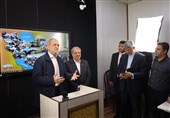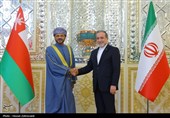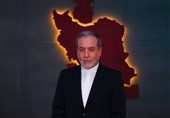Resistance of Nations Shaping New Regional Order: Iranian President
TEHRAN (Tasnim) – What is shaping the future of the region and Palestine is not the negotiating table or the likes of the so-called deal of the century, but the resistance shown by nations that is defining a new regional order, Iranian President Ebrahim Raisi said.
"What determines the future of the region and Palestine is not negotiation table and pacts like Oslo, Camp David and the deal of the century, but the resistance of nations is the determining factor of the new regional order,” Raisi said in a meeting with his Syrian counterpart Bashar al-Assad, held in Tehran on Sunday.
"What we are witnessing today in Western Asia, which is the result of the resistance of nations against domineering powers and aggressors, is what the Supreme Leader of the Revolution had predicted,” Raisi added, according to his official website.
Commemorating the martyrs of the resistance from Syria and Iran, including Lt. General Qassem Soleimani, and appreciating the bravery of the Muslim world’s fighters against terrorism, the Iranian president said, "Like your father, you are one of the figures of the resistance front."
Referring to the political and security developments in the region in the last decade, Raisi said, "The warriors of the resistance have proved that they are a reliable force for establishing stability and security in the region, including in Syria."
Emphasizing the need for all countries to respect Syria's sovereignty and territorial integrity, the Iranian president added, "Iran stood by the Syrian people and government when some Arab and non-Arab leaders in the region were betting on the time of the fall of the Syrian government."
He also noted that the bravery of the Syrian army and national defense forces and Islamic Resistance fighters in the region, especially the heroic Hezbollah, played a key role in drying up the roots of Daesh (ISIL or ISIS) and other terrorist groups that threatened the security of the entire region.
The president expressed regret that important parts of Syria are still occupied by foreign forces, adding, "This occupation should not be subject to the passage of time, and the occupying forces and their mercenaries should be expelled."
Referring to the Israeli aggression, he stressed, "The threats of the Zionist Regime in the region should be addressed by strengthening and diversifying the deterrence equations."
Highlighting the need to strengthen cooperation and coordination between the two countries, Raisi emphasized, "The serious will and desire of the Islamic Republic of Iran is to improve the level of cooperation and relations with Damascus, especially in economic and trade fields."
For his part, the Syrian president stressed the role of Iran in the fight against terrorism in the region, noting that his country is ready for wider coordination with Iran in the security, political and economic fields.
"In the years of resistance and confrontation with Western and Takfiri aggression, Iran was the only country that stood by us from the beginning," he added.
Assad described the relations between Syria and Iran as strategic, stating, "Developments in the region after a decade of war against the axis of resistance, have shown that resistance is effective and fruitful.
"We have shown that by working closely with the countries of the region, we can defeat the United States and the hegemons who claim to be superpowers, and today we are witnessing the collapse of the role-playing of the United States in the Western Asian region," he said.
"Experience has shown that the coordination and interaction of countries in the region on various issues, including the Palestinian issue, has been very effective, and the success of the Palestinian resistance has shown that compromise by some Arabs has backfired," the Syrian president said.
Thanking the support of Iran for the Syrian people in the war on terrorism, Assad stated, "The Syrian people and government are grateful to the Iranian people and consider themselves committed and indebted to Iran."






